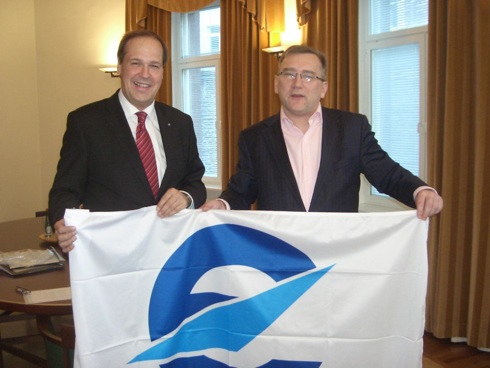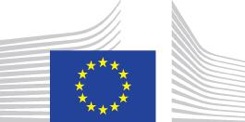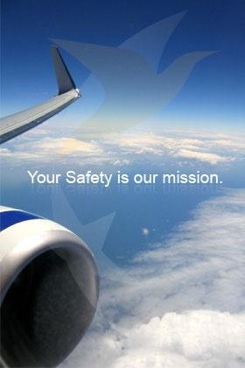BeiDou performance standard published

Through the good offices of the Royal Institute of Navigation we have been informed that an English version of the BeiDou Navigation Satellite System Public Service Performance Standard has been published. The document (Version 1.0) details the Public Service Performance parameters of the BeiDou system (BDS), including service area, accuracy, integrity, continuity and availability. It is published as ‘a basic commitment to customers from BeiDou system providers, but also an important basis for customers to choose, use and evaluation the system performance’.
The BeiDou space constellation ultimately will comprise 35 satellites to provide a global service. With a current space constellation of 14 operational satellites, it has provided open services to much of the Asia-Pacific region since December 2012.
Duxford’s American Air Museum redevelopment funding

Exterior of the American Air Museum – © IWM
An announcement was made on 15th January 2014 to the effect that the Imperial War Museum (IWM) Duxford in eastern England has received a grant of £ 980,000 from the national Heritage Lottery Fund (HLF) for the American Air Museum redevelopment project.

Interior of the American Air Museum, showing the B-52 Stratofortress, around the dimensions of which the American Air Museum was built – © IWM
The American Air Museum was built at IWM Duxford in 1996-67 to present for public display the best collection of American military aircraft outside the United States. The Museum tells the story of American air power and the integral relationship between the United States and the United Kingdom.
Estonia applies for Eurocontrol membership

Estonia is the only European Union Member State that is not yet a EUROCONTROL Member – but this could well change on 1st January 2015. Estonia signed a Declaration of Intent to accede to EUROCONTROL in June 2013.

At left, Frank Brenner, Director General of EUROCONTROL, and Juhan Parts, the Estonian Minister for Economic Affairs and Communications.
EASA and PED’s on board aircraft

On 9th December the European Aviation Safety Agency (EASA) published guidance which expands to all phases of flight the possibility to use personal electronic devices (PED) such as tablets, smartphones, e-readers and MP3 players. The devices will have to remain in ‘Flight Mode’ or ‘Airplane Mode’ and transmitting capabilities will have to be disabled.

It will be to the discretion of each airline to use this guidance and change its policy. In this case, the airline will have to inform the aviation authority of the country in which it is registered.
e-Navigation underway 2014
Organised by IALA with the Danish Maritime Authority in association with the Nautical Institute, the Comité International Radio-Maritime, the International Hydrographic Organization and the ACCSEAS Project delegates will focus on strategic issues and study detailed aspects of e-Navigation.
It will be the fourth time the international e-Navigation community will gather in a maritime environment to discuss the current state of the e-navigation process. Day one will focus on strategic issues, day two will explore more detailed aspects of e-Navigation and the third day will be dedicated to an open discussion to achieve full consultation on conclusions and recommendations.
eDLoran Enhanced Differential Loran

The Dutch company Reelektronika B.V. has, at the request of the Dutch Pilots Corporation (Nederlands Loodswezen), developed and tested successfully Enhanced Differential Loran (eDLoran) to backup GNSS in cases of jamming or spoofing of the satellite system. An unprecedented but required absolute accuracy of five metres has been achieved at sea and in the Rotterdam Europoort harbour area.
UK transport networks still vulnerable to winter weather
The resilience of UK transport infrastructure and services during periods of adverse winter weather has improved, but more must be done to strengthen the sector’s winter preparedness, said the cross party Transport Select Committee in
the House of Commons, the parliament’s lower house.
“Disruption to transport is not just caused by snow. We saw recently the impact of severe storms and flooding on transport services. At Gatwick, thousands of passengers were stranded over the Christmas period due to a power failure
during stormy weather.”
